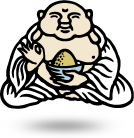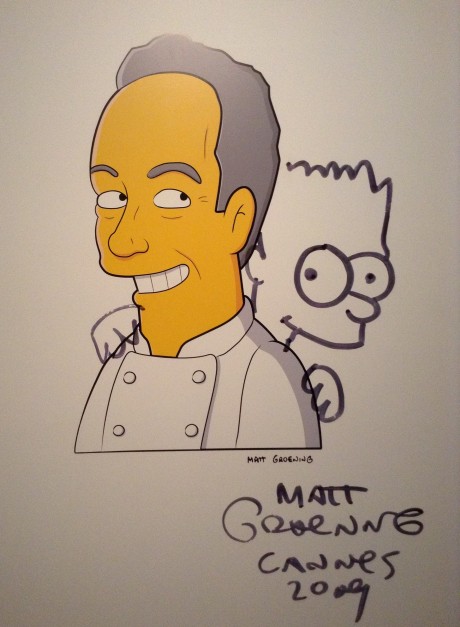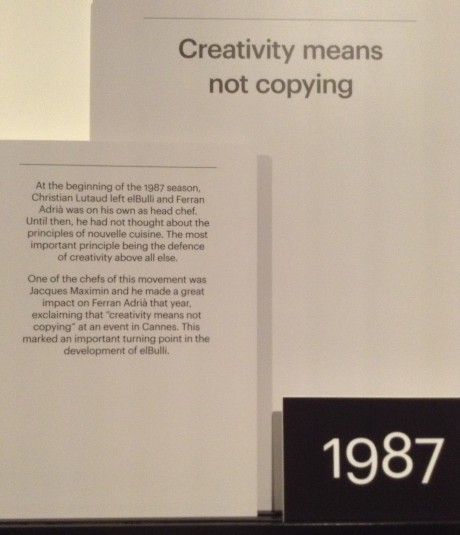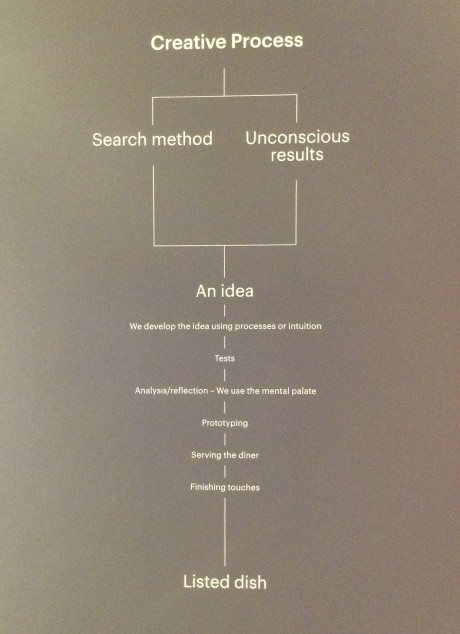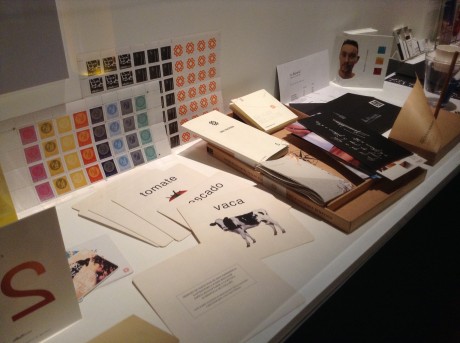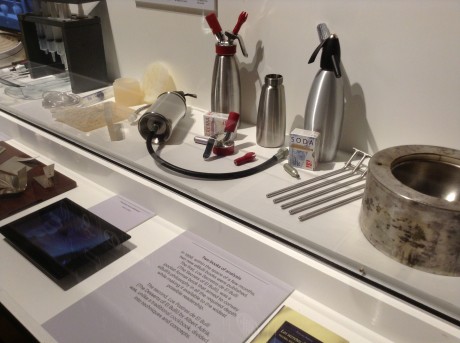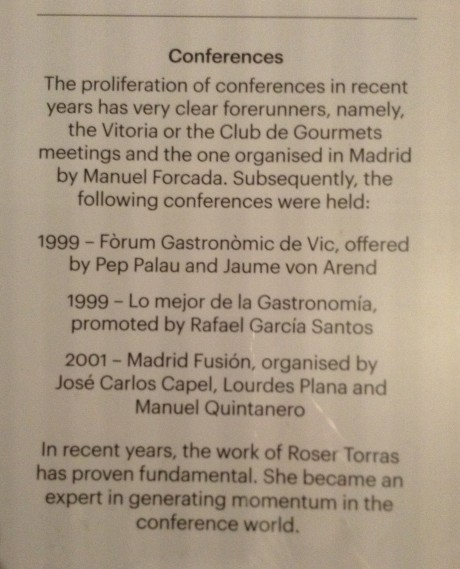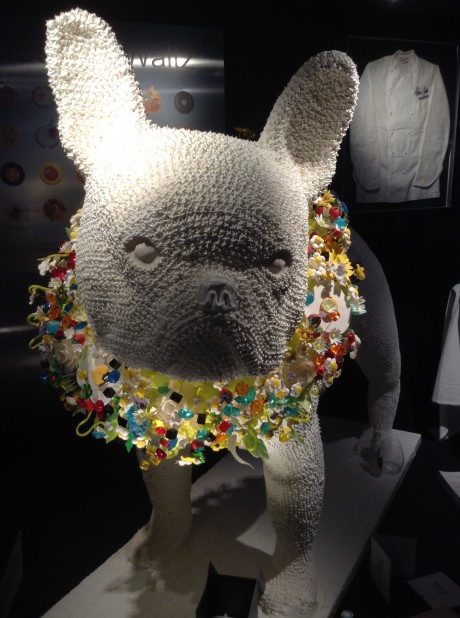Creative? – An Audience With Ferran Adrià
Posted by Brett Macfarlane on Friday, July 26th, 2013
London, UK
It is a question that quietly haunts chefs: what is creativity? From raw ingredients, fire and knives a meal is created, but is it inherently creative? As individual professionals are they themselves truly creative?
A question unequivocally answered by Ferran Adrià at the opening of The Art of Food, exhibited through October by Sommerset House in London. The exhibit and a meeting with Ferran Adrià shattered any illusions or uncertainty around what creativity means in food, gastronomy and well any creative endeavour.
Adrià’s restaurant elBulli and his individual aura stands tall over the world of cuisine. After years entrenched atop global restaurant rankings, the most learned and respected practitioners of gastronomy look to him as emperor of our time, equalled over time only by the father of haute cuisine, Auguste Escoffier.
The exhibit tells the story of elBulli from a humble, well-situated, mediterranean holiday resort with a mini-golf track to gastronomic restaurant phenomenon. It catalogues the tremendous range of dishes created, an overwhelming volume as by the last year dinner was 50 courses. The exhibit has been controversial, even if only for avoiding the artificial airs of self-importance, puffery and foul-mouthed arrogance that fuel the modern mainstream obsession with food culture.
After viewing the exhibit, we fortunate few were ushered by the sunny red-blazered Estrella team into a cozy theatre amidst arching stone catacombs, the hushed cavern exuding a sense that we sat on the edge of enlightenment to life’s greatest secrets and mysteries.
Unexpectedly, the room’s electric air of tense expectation relaxed as a Ferran simply stood up, from amidst our red corduroy seats, dressed in a solid black t-shirt, smart dark jeans and spiffy Nikes with thoughtful splashes of colour.
The man, who has been on the cover of every publication imaginable, most notably a shocked Financial Times the day he announced the closure of the elBulli, immediately, casually and honestly dove into the real provocation of the exhibit; the total reveal of their creative process.
Speaking in excited burst of Catalan, through his quick witted interpreter, he practiced the trick of any master performer; he simply spoke the truth.
The unexpected lack of media trained platitudes, scripts and preciousness made his disarmingly pragmatic explanation of the way they worked, different from anyone else, resulting in an eating experience unlike anything else, gave us all a confidence that we too could change the world by simply not trying to be what the world already is. It was obvious really, in theory at least.
The bites of insight came with every breath, here arbitrarily distilled down to seven most enriching.
1. Creativity means not copying.
Defining what creativity is was an early exercise, once settled the impact of their work began, methodically.
2. Method and effort trumps madness.
“If you spend twice as much time experimenting by closing your restaurant half the year your product will be twice as creative as anyone else’s.”
3. Influence comes from unexpected places.
If you only stay within the universe of gastronomy you will only replicate, or at best improve, what has already been done, in gastronomy.
4. “Ideas are easy, it is doing that is the problem.”
The greatest creative expression come not from intention but the ingenuity required to make an idea happen.
5. “The next “El Bulli” will not come from trying to replicate El Bulli.”
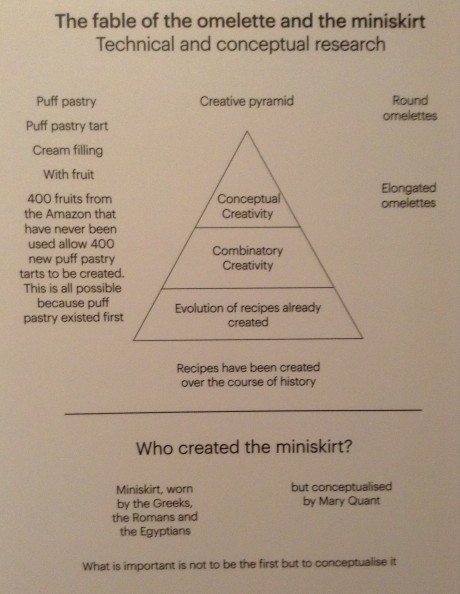
“It is crazy what we did” says Ferran “if people try to follow what we did they will only replicate, to innovated you need explore and question every aspect of what a restaurant is, from why the first thing every great restaurant around the world serves is bread, something you could have got at home, to the very concept of what a dish is.”
6. Sharing gives more in return than goes out.
“Sharing what we were doing attracted new inputs informing what more we could do, particularly from like minded collaborators from other disciplines like design, art and architecture who we otherwise would not have met.”
7. elBulli needed to close or it would have died.
Running a haute restaurant is brutally hard, they had to take on consulting and endorsement projects to fund the continuation of elBulli which inevitably by the forces of nature and culture would close when the sheen wore off or worse become a stagnant museum to what it once was. So better to stop while it is at its best and turn what was learned into a foundation to benefit all.
Afterwards, on the back terrace of Somerset House overlooking the Thames, with a half-pint of Estrella Dam poured by their master brewer into branded crystal glasses, the group gathered still stunned self-consciously in awe. A group of accomplished culinary professionals, and me, deeply pondering the clear-headed and objective logic of the man and in awe of the total truth and simplicity behind it all. But mostly shell shocked by the brutally simplistic answer to the subjective question of what creativity means. An answer I’ve already started to copy.
